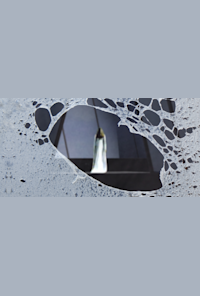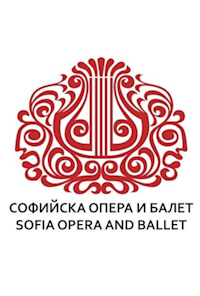ELEKTRA is an adaptation of Sophocles' ancient Greek tragedy of the same name by the Viennese writer Hugo von Hofmannsthal.
Electra wants to avenge her father Agamemnon, killed by her mother Clytemnestra and her lover Aegisthus. She tries to convince her sister Chrysothemis to help her, but she refuses to take part in the revenge. Electra is avenged after her brother Orestes, presumed dead, kills Clytemnestra and Aegisthus. This turn of events causes Elektra to feel mixed emotions, and she breaks into a whirlwind dance before being struck down by death.
Richard Strauss creates a musical style in which he uses sharp changes and unexpected twists, contrasting with the emotional state of the characters and emphasizing the cruel development of the plot.
For the second time in Bulgaria, opera lovers will have the opportunity to enjoy the opera "Electra" by Richard Strauss. The idea for the realization of the play was Plamen Kartalov's. Thus, the Sofia Opera will join the most prestigious opera houses in the world, which have in their repertoire the modernist work of Richard Strauss.
***
"Electra" is another extremely complex creative task for the troupe of the first opera in Bulgaria. After the tetralogy "The Ring of the Nibelungen", "Tristan und Isolde" and "Parsifal" by Richard Wagner, the inclusion of "Electra" in the non-traditional repertoire program shows the enormous artistic potential of the Sofia Opera. Only Bulgarian singers are included in the line-up of soloists. The vocal style of Richard Strauss is atypical and this provokes a new, different performance of the soloists and choirs. The score is dotted with great orchestral difficulties, and Plamen Kartalov's directorial idea, as always, sculpts the artistic images and places them in new dimensions of creative search.
"Electra" premiered during a pandemic and a series of trials of the spirit. But this is also proof of the courage of the Sofia Opera at this very moment to present to its faithful audience a fascinating spectacle that outlines a clear vision for the development of the theater in the near future.
In the main roles we will see Lilia Kehaiova and Diana Guglina as Elektra, Gergana Rusekova, Mariana Tsvetkova and Yordanka Milkova - in the role of Clytemnestra, Daniel Ostretsov and Emil Pavlov as Aegistus, Veselin Mihailov and Atanas Mladenov - in the role of Orestes.
The conductor of the performance is maestro Evan-Alexis Christ, set designer Sven Jonke, and director Plamen Kartalov.
***
Richard Strauss and Hugo von Hofmannsthal met at the turn of the 20th century at the home of the German writer Richard Demmel in Berlin. Hofmannsthal immediately expressed a desire to work with the composer and at their next meeting in Paris offered him the ballet libretto.
"Triumph of Time" did not impress Strauss and he rejected the offer. At that time, he enjoyed the fame of a well-known and sought-after conductor throughout Europe.
In 1903, Richard Strauss attended the premiere of the play Electra adapted by Hofmannsthal for the Max Reinhard Theater in Berlin. The composer immediately realized that the drama could serve as the basis for an opera libretto and contacted the writer. The two began an extremely fruitful collaboration that would last 20 years and produce six operas.
Richard Strauss established himself as an opera composer after the astonishing success of Salome in 1905. It is interesting to note that his new idea had the same origins as Salome: a play seen in Berlin, directed by Max Reinhardt and starring the actress Gertrude Isolt in the title role.
But the similarities end there. In their joint work, Strauss and Hofmannsthal achieve a perfect balance between text and score, raising this symbiosis to an extremely high level. Hofmannsthal complies with the composer's notes and revises parts of the libretto. All this is done through letters by mail, so with the writer living in Vienna and Richard Strauss in Berlin.
"Electra" is a highly innovative one-act play, the plot of which involves murder, deception and revenge:
Electra is obsessed with her desire to avenge the death of her father Agamemnon. She incites her brother Orestes to kill the culprits - their mother Clytemnestra and her lover Aegisthus. Finally, astonished and embarrassed by her act, Electra dances in ecstasy, but before the end of the dance falls dead to the ground.
***
After three years of work, "Electra" was completed. The world premiere was on January 25, 1909 at the Royal Opera House in Dresden.
The modern musical language of "Elektra" caused conflicting reactions from the audience at the premiere. From the very first chords, the composer puts the listener in a state of tense anticipation. Based on ancient Greek mythology and Sophocles' tragedy of the same name from 410 BC. like the libretto, Strauss wrote the work in a highly modernist and expressionist style. The composer creates a canvas for dramatic voices and a huge orchestra, but also a piercing musical and psychological portrait that impresses with its extraordinary emotionality and expressiveness.
In musical line, orchestration, and aesthetics, Elektra contrasts sharply with Strauss's earliest operas and with his later career. Elektra is Strauss's most modern work and the only opera in which he pushes the limits of tonality to the impossible. After "Elektra" he retreated to a more conservative style of composing.



